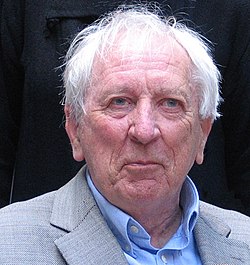To mark the birthday of Franz Schubert (1797-1828), born January 31st, we thought we'd close our celebration of his legacy throughout this month with some representative works of his final phase.
Composer Benjamin Britten has remarked that perhaps the most productive eighteen months in the history of Western Music was the period just after the death of Beethoven, and before the appearance of Wagner, Liszt and Verdi. In this period Schubert composed his Symphony #9 in C, the Quintet in C for strings, the last three piano sonatas, and the song cycle, “Die Winterreise.” That it could be accomplished at all is astonishing enough. That he never reached his mid -thirties (dying younger than either Mozart at 35 or Mendelssohn at 48) and was both impoverished and ill--well, that's stuff for the ages.
 |
| Poet, Tomas Transtromer. |
Among the works and performers we’ll hear in this finale before his birthday are Wilhelm Furtwangler’s recording of the 9th symphony, Clara Haskil in the last piano sonata, the D.960, excerpts from the oratorio “Lazarus,” music from the piano trios, and the culmination of our Winter's Journey with a haunting “Leiermann” and s ongs from “Schwanengesang.” We will also feature a twentieth century artifact of Schubert's inspiration, a poem by the Swedish poet and winner of the Nobel Prize for Literature 2011, Tomas Transtromer, Schubertiade, read by Gemini Ink Director Rosemary Catacalos.
Please join us as we celebrate the extraordinary legacy and miraculous achievement of Franz Schubert this Sunday afternoon at 2pm on KPAC and KTXI.
--Ron Moore

No comments:
Post a Comment